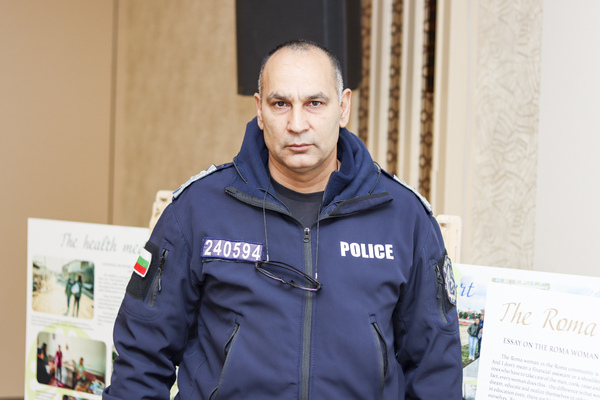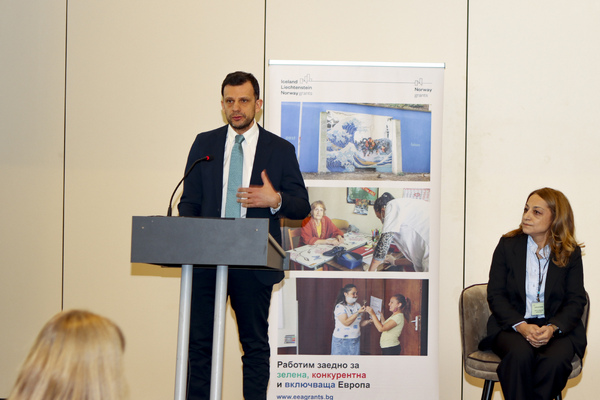
22-02-2024 11:38
More than 100 representatives from various institutions, international organizations, municipalities, and the non-governmental sector participated in an event to present and discuss the results of measures targeted at Roma people and supported by the Financial Mechanisms of the EEA and Norway. "We are closing the program period and are on the threshold of the next one. Now is the time to draw the appropriate conclusions, to take into account what lessons have been learned, and what future challenges lie ahead," noted in his opening remarks Ivan Ivanov, Head of the National Focal Point in Bulgaria. On behalf of the donors, Anlaug Rønneberg, senior advisor at the Norwegian Ministry of Foreign Affairs, took the floor. She pointed out that Roma people are the most discriminated minority in Europe, with limited access to education, healthcare, at risk of poverty, and hate crimes. "It is important for us to hear your experiences - what works and what does not, what challenges and successes you have had in the process of implementing the projects. Roma inclusion and empowerment will remain among the priority program areas in the new financial mechanisms, and we are pleased that the lessons learned are part of today's event," said Mrs. Rønneberg. Presentations of successful projects from various programs followed, as well as discussions of lessons learned and challenges.
During the event, we managed to talk to some of the people who worked on the supported projects. Nikolay Stoichkov from the "Don't Blink Before Bulgarian Cinema" company and Rositsa Gushcherova-Kazakova from the "Spaces" company - Free Spirit Art project introduced children from the villages of Oreshene, Yablanitsa, Selanovtsi, Sklave, Hristo Danovo, Karlovo, and Krichim to the arts of cinema and theater.
Rositsa: "The two foundations have partnerships even before the project and hold annual meetings with children in small communities. We decided that this is a good opportunity to overcome our fears and hesitations and embark on this adventure. We worked with children in 5 settlements, most of them villages. Access to culture is extremely limited. The children made art before they had seen art. A large part of these children had not attended either cinema, theater, or exhibition. They do not know what it is. They entered the topic with great curiosity, but also with the characteristic haste of today's children - they seek to achieve quick results. They had to overcome this, to have the patience to see the final result."
Nikolay: "Children come with great curiosity, but the biggest problem is the parents who prevent them from coming. We even have cases where parents say, 'You will no longer go because we do not know where these people come from and who they are.' Some parents of girls were worried that their children would be kidnapped."
Rositsa: "The lack of trust is because they live in very isolated communities and anything new is fear. That's why we worked with school partners. When you have a partnership built there, there will be no problems. The base in schools has improved significantly. Directors create an environment to motivate children with something more than the traditional lunch."
Our next meeting was with Aylin Dzhafer - project manager at the "Active Citizens Fund". She works primarily on the "Mentor Support for Roma Origin Students Studying Health Specialties" and "Scholarship Program for Roma Origin Students Studying Health Specialties".
"The scholarship program is one of the most exciting projects this program period because it involves supporting Roma students who have the ambition to study medical specialties and at the same time develop their communities. One of the most interesting components, apart from scholarship support and mentoring, is the opportunity to organize small projects in their communities. Which means that they have the opportunity to plan from start to finish a small project or campaign to conduct in the field. And every summer the most exciting things happen when our scholars go to the field, meet communities they do not know so well, and thus create an opportunity for the Roma communities themselves to see them as part of them. The selection of students has always been on a competitive basis, so the competition was quite tough. From the beginning of the program in 2018 until now, I have observed the turnover of an entire generation, which has started and completed and now we already have many freshmen and the effect is multiplied. The idea is for the mentors to be close enough, professionally, to the scholars. The whole process of selection and adaptation is related to a lot of research on what everyone has been doing over the years. There are both communities and contacts between the students themselves, and we see that they support each other and exchange information. They have their own network for exchanging information. We have awarded over 270 scholarships, supported 120 students. And by the end of this academic year, we will have about 50 graduating students who have managed to complete their higher education thanks to the program."
Konstantin Raikov tells us that he has been in the Ministry of Interior system for 21 years and has always been a neighborhood liaison at the Faculty. "I was trained to be a trainer, and this contributed a lot to my work - I learned a lot from my colleagues, we exchanged experiences. We went through the period when I was also a trainer. It was a challenge for me." The trainings are part of the project "Improving coordination and dialogue between the police and the Roma community", funded under the "Internal Affairs" Program. Within the project, 20 reception areas in Roma neighborhoods in Sofia, Burgas, Varna, Pazardzhik, Plovdiv, Stara Zagora, Vidin, Montana, Sliven, and Yambol are being renovated and equipped. The renovated receptions will create better working conditions for police officers, provide more comfort for people seeking police support, and will be a contact point when problems arise for local communities.

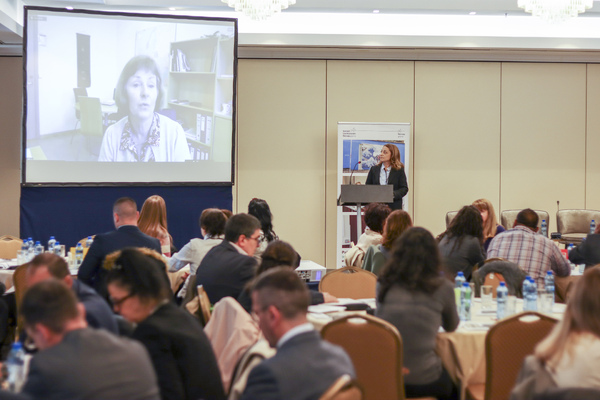
A welcome speech live from Norway with Anlaug Rønneberg, Senior Advisor at the Norwegian MFA
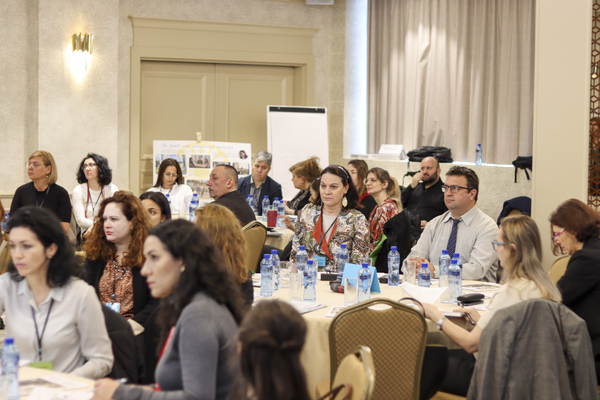
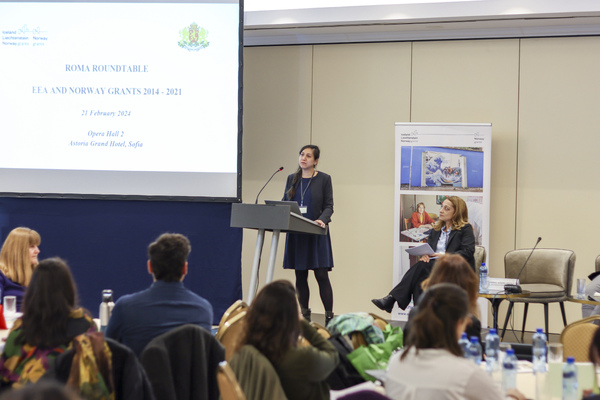
Sheena Keller, Senior Sector Officer - Horizontal Concerns and International Partner Organisations. FMO
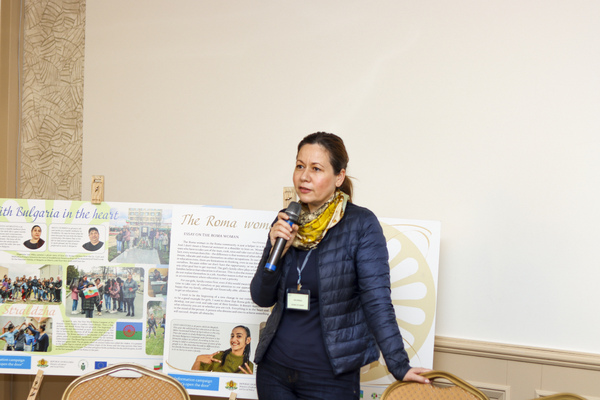
Ana Oprisan, Programme Manager ROMACT, Council of Europe
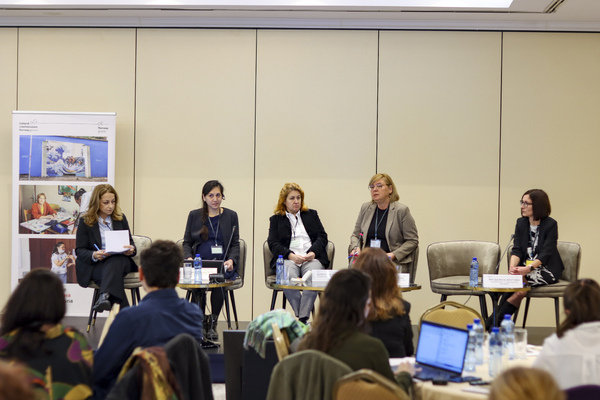
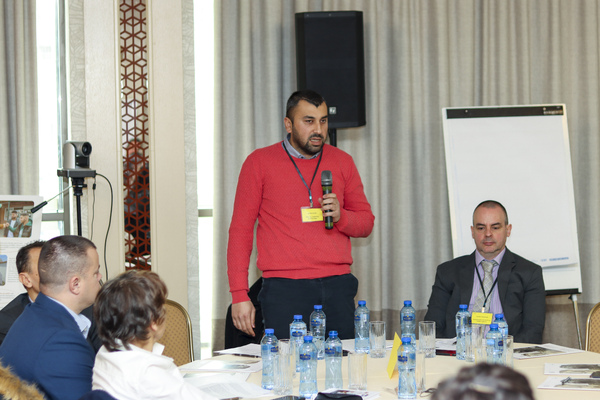
Ognyan Isaev, Program Director "Educational Opportunities and Achievements", "Trust for Social Achievement"
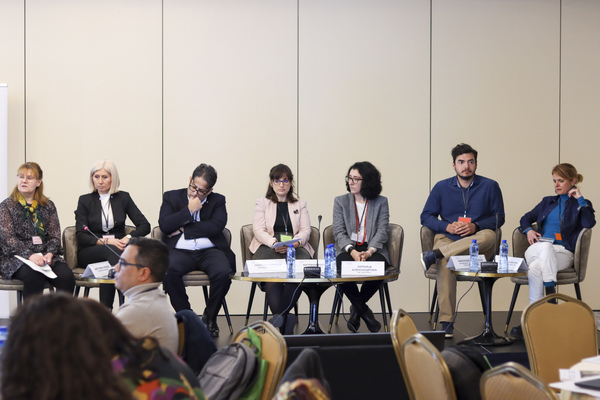

Nikolay Stoichkov, No Blink Foundation, Rositsa Gushterova-Kazakova, "Spaces" Foundation
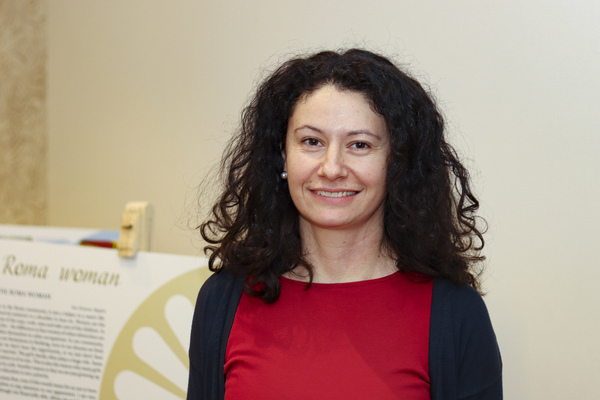
Aylin Dzhafer, Project Manager, Active Citizens Fund"
